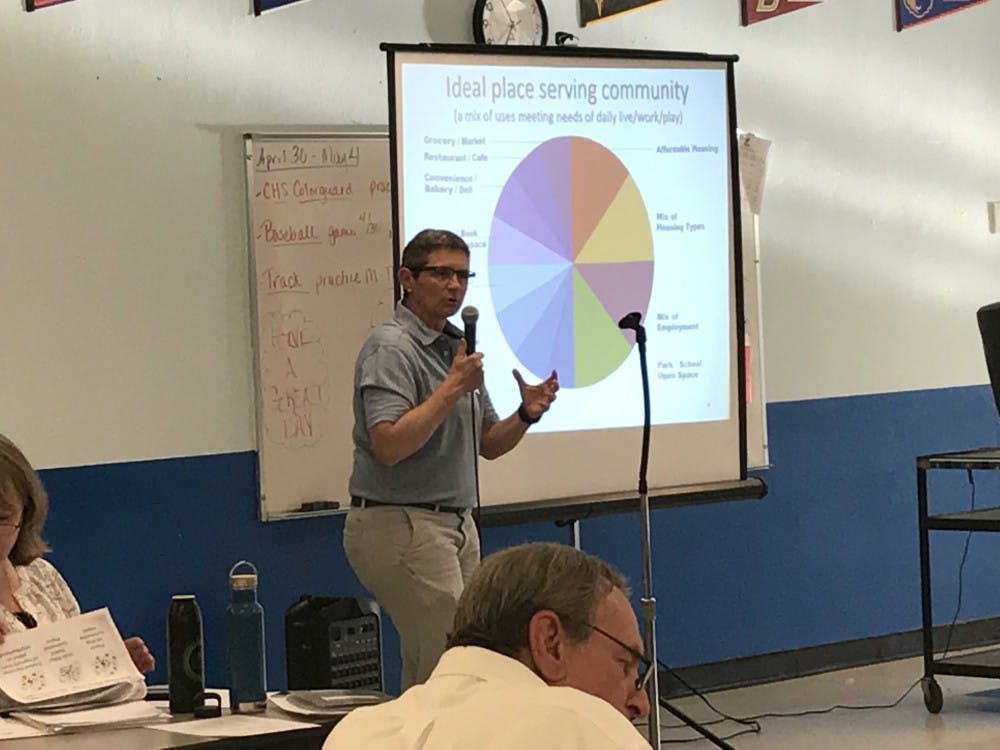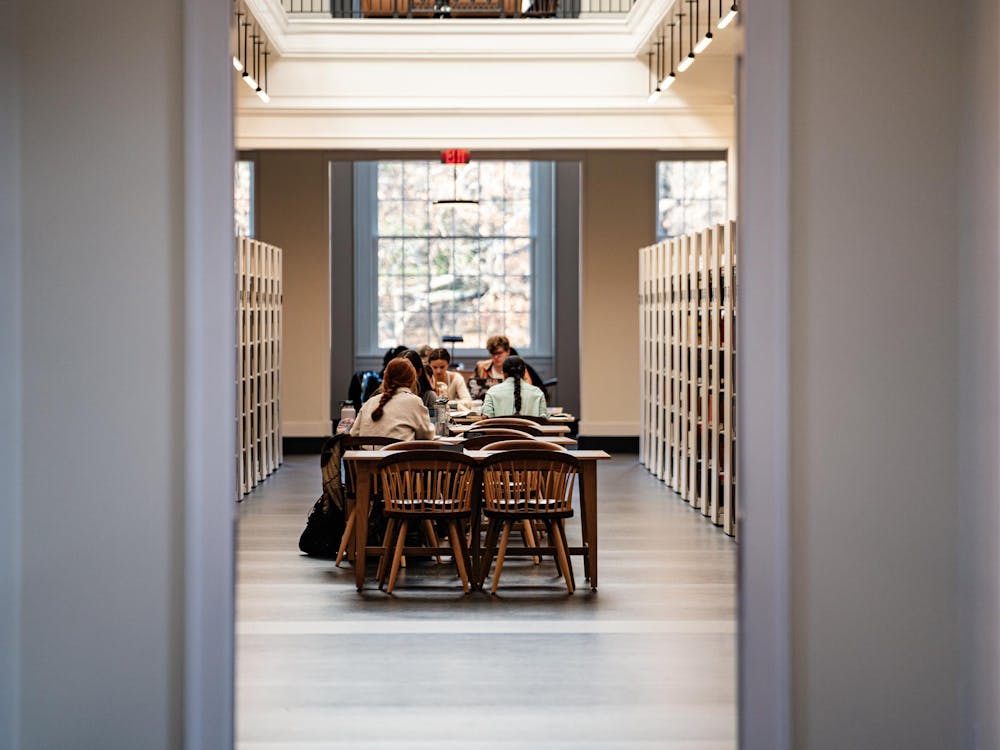Around 40 members of the Charlottesville community met in the lunchroom of Buford Middle School last Tuesday to deliver feedback to members of the City Planning Commission and other city staff personnel on the currently proposed draft of the Comprehensive Plan update.
State law dictates that each locality within Virginia must create a local planning commission to envision and plan ahead for future city development and expansion. More specifically, the commission is tasked with developing a comprehensive plan to guide this development process and is required to update the plan at least once every five years.
The Planning Commission has until October to submit its final review of the comprehensive plan to the Charlottesville City Council. The review was originally set to be complete by June, but the commission requested approval from the Council to have its deadline extended to allow for additional time to elicit public feedback in the process.
After the commission receives community feedback through a number of workshop-based sessions throughout the month of May, the body will further revise the current draft to present the final updated version to the Council by October.
Tuesday’s session was facilitated by members of the planning commission and Allison Linney, a contracted government facilitator and business management consultant.
The meeting was structured so that those attending would be able to be heard in both large groups and in smaller discussions. During the first round of small discussions, the community members were able to choose which broad topic they wanted to discuss.
The topics included housing, economic sustainability, land use, community engagement, the environment, transportation, historic preservation and urban design.
After discussing their respective topics in small focus groups, participants were assigned to random tables to discuss issues with others who were originally in different topic groups.
The Comprehensive Plan review will have multiple phases before its completion, and each phase is structured to include community participation in some form. Phase One asked community members where they preferred to spend time in Charlottesville.
Based on surveys conducted by the City, some of the locations mentioned during this phase were Downtown Charlottesville, the Barracks Road Shopping Center and Downtown Belmont.
Phase Two of the review process asked community members about their preferred type of housing or commercial development and where they believed the ideal locations were for each. It also surveyed the population on what specific factors would make the areas selected during the first phase the most favorable and desirable for residential living.
Lisa Green, chair of the Planning Commission, presented the responses to this survey — the overwhelming majority of respondents preferred places with a community feel, green spaces as well as walking and biking accessibility.
Currently, the commission is undergoing Phase Three. During this phase, the commission will be seeking input on the current draft of the 2018 General Land Use Plan — a map that uses color and intensity to show various places within Charlottesville that could be used for residential and commercial areas.
Both Linney and Green stressed the planning commission’s need and desire for input from the greater community.
Serena Gruia, a Charlottesville resident who serves on the city’s PLACE Design Task Force, which advises City Council and the Planning Commission on urban design-related issues, agreed.
“Building relationships and community … [is] something that starts at the neighborhood level,” Gruia said.
The topic of affordable housing and its limited availability in Charlottesville was emphasized as a topic of concern among the various groups.
Affordable housing has been a major topic of discussion locally in recent months.
In February, the City and the Batten School hosted the first annual affordable housing summit and the University and several community advocacy organizations also hosted a housing justice conference in March.
In April, the City Council held a preliminary discussion about an amended ordinance to establish a City land bank corporation as part of an effort by the Council to address the City’s affordable housing crisis.
The City currently has $20 million allocated towards the development of affordable housing in the next five years.
Hosea Mitchell, an incoming member of the commission and a Charlottesville resident, emphasized the need for clear definitions and explanation of terms throughout the planning process, so that citizens can easily understand the maps and drafts of the plan.
The commission definines “intensity of housing” as it relates to the concentration of housing per a given area. The Comprehensive Plan hopes to increase the opportunity for mixed-use affordable housing within Charlottesville, or buildings that contain both living and commercial space as part of an effort to increase housing density given the land limitations in City limits.
Since Charlottesville encompasses only 10.24 square miles of land, there was concern among the local residents and City officials attending the meeting about which areas will be used and how they will be developed. Because of the space concerns, the plan focuses on integrating commercial and residential areas as well as building up rather than across large swaths of land.
“It’s amazing how little space we have to do things with” Mitchell said.
“It's one thing to own property and development within the community,” Green said. “It’s another thing to go home and lay your head down and sleep in that community and raise your kids in that community and walk your kids to school in that community.”
The City will host three additional workshops on the update of the comprehensive plan throughout the month of May — the next of which will be held May 10 at CitySpace on the Downtown Mall. More information about the remaining sessions can be found here.





